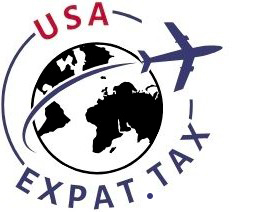Germany is one of the most popular destinations for American expats — but when it comes to taxes, it’s also one of the most complicated. As a U.S. citizen or green card holder living in Germany, you're subject to both U.S. and German taxation on your income. The good news: there are strategies and treaties in place to avoid being taxed twice — if you use them correctly.
This post explains how U.S. tax rules interact with the German system, how the tax treaty and totalization agreement work, and what you need to know about foreign pensions, social security, and tax credits.
1. Yes, You Still Need to File U.S. Taxes
If you're a U.S. citizen or green card holder abroad — even if you’ve lived in Germany for decades — you must file a U.S. tax return every year if your income exceeds the filing threshold.
This includes:
-U.S. citizens living in Germany full-time
-Dual U.S.–German citizens
-U.S. green card holders residing in Germany
The U.S. taxes worldwide income, regardless of where you live. That includes German wages, self-employment income, rental income, and even pensions and German social security.
2. You Can Avoid Double Taxation — But It’s Not Automatic
There are two key tools that help U.S. expats avoid being taxed twice:
Option A: Foreign Earned Income Exclusion (FEIE)
Allows you to exclude up to $126,500 (2024) of earned foreign income (like wages or self-employment)
Requires you to pass either the Physical Presence Test (330 days abroad) or Bona Fide Residence Test
Doesn’t apply to passive income (e.g. pensions, interest, dividends, rentals)
Doesn’t eliminate self-employment tax unless exempt under the totalization agreement
Option B: Foreign Tax Credit (FTC)
Use Form 1116 to claim a dollar-for-dollar credit for German income tax paid
Helps offset U.S. tax on any foreign income, including pensions and social security
Usually the better choice if you're:
-Paying higher German taxes than you'd owe in the U.S.
-Wanting to claim the Child Tax Credit, which is often lost when using FEIE
-Receiving income not eligible for exclusion (e.g., German retirement income)
Some expats benefit from a hybrid approach, using FEIE for earned income and FTC for the rest — but careful planning is necessary.
3. Understanding the U.S.–Germany Tax Treaty
The U.S.–Germany income tax treaty outlines which country has taxing rights over different types of income. However, for U.S. citizens, this treaty is heavily limited by what’s called the “savings clause.”
The Savings Clause (Article 1(4))
This clause allows the U.S. to ignore most of the treaty’s benefits and tax U.S. citizens as if the treaty didn’t exist. This means that even if the treaty says Germany has exclusive taxing rights over certain income, the IRS can (and often does) tax it anyway.
There are exceptions — but they are narrow and specific, such as:
-U.S. government pensions (taxable only by the U.S.)
-Certain student or teacher exemptions
-Treaty-based relief under very specific pension provisions (Article 18A)
4. German Pensions and Social Security: U.S. Taxable
This is one of the most misunderstood areas in expat tax:
German public pensions (Rentenversicherung) and German social security are generally taxable by the U.S., even if you’re also paying German tax on them.
Because of the savings clause, U.S. citizens cannot rely on the treaty to exempt their German retirement income from U.S. taxation. This includes:
-German social security
-Company pensions or annuities
-German "Riester" or "Rürup" pensions
These are treated as foreign pensions on your U.S. return and must be reported on Form 1040, Line 5a/5b. You then use Form 1116 to claim a foreign tax credit for the German tax paid on those pension amounts.
5. Social Security Contributions: The Totalization Agreement
If you're working in Germany, you're likely paying into the German social security system. Ordinarily, the U.S. would expect you to also pay U.S. self-employment tax (Social Security + Medicare) on your income — but the U.S.–Germany Totalization Agreement prevents double contributions.
Here’s how it works:
Employed by a German company: You only pay into German social security, and are exempt from U.S. self-employment tax.
Self-employed in Germany: You are still subject to U.S. self-employment tax, unless you obtain a Certificate of Coverage from Germany showing you’re covered exclusively by their system.
This agreement helps determine which country you owe social security to — but it doesn’t eliminate income tax obligations.
6. What About Rental Income, Dividends, and Capital Gains?
These types of income are all reportable on your U.S. return. Whether or not Germany taxes them depends on:
-Your residency status in Germany
-Whether income is sourced to Germany or the U.S.
Regardless of German treatment, the U.S. requires full disclosure, and you may use Form 1116 to offset foreign taxes paid on passive income as well.
7. Don’t Forget FBAR and FATCA
If you have more than $10,000 USD combined in non-U.S. accounts at any point during the year, you must file an FBAR (FinCEN 114).
If your foreign financial assets exceed certain thresholds (starting at $50,000), you may also need to file Form 8938 under FATCA.
Germany’s banking system is strict and strictly reports — so it’s critical to stay compliant. Penalties for failing to report foreign accounts are steep.
Paying taxes in both Germany and the U.S. can feel overwhelming — but it doesn’t have to be. With proper use of the Foreign Tax Credit, attention to the savings clause, and knowledge of the totalization agreement, most Americans in Germany can avoid double taxation and stay fully compliant.
🔎 Need help filing your U.S. taxes from Germany?
At USAexpat.tax, we specialize in helping Americans living abroad file correctly, minimize double taxation, and stay stress-free.
👉 Start your expat tax prep today

